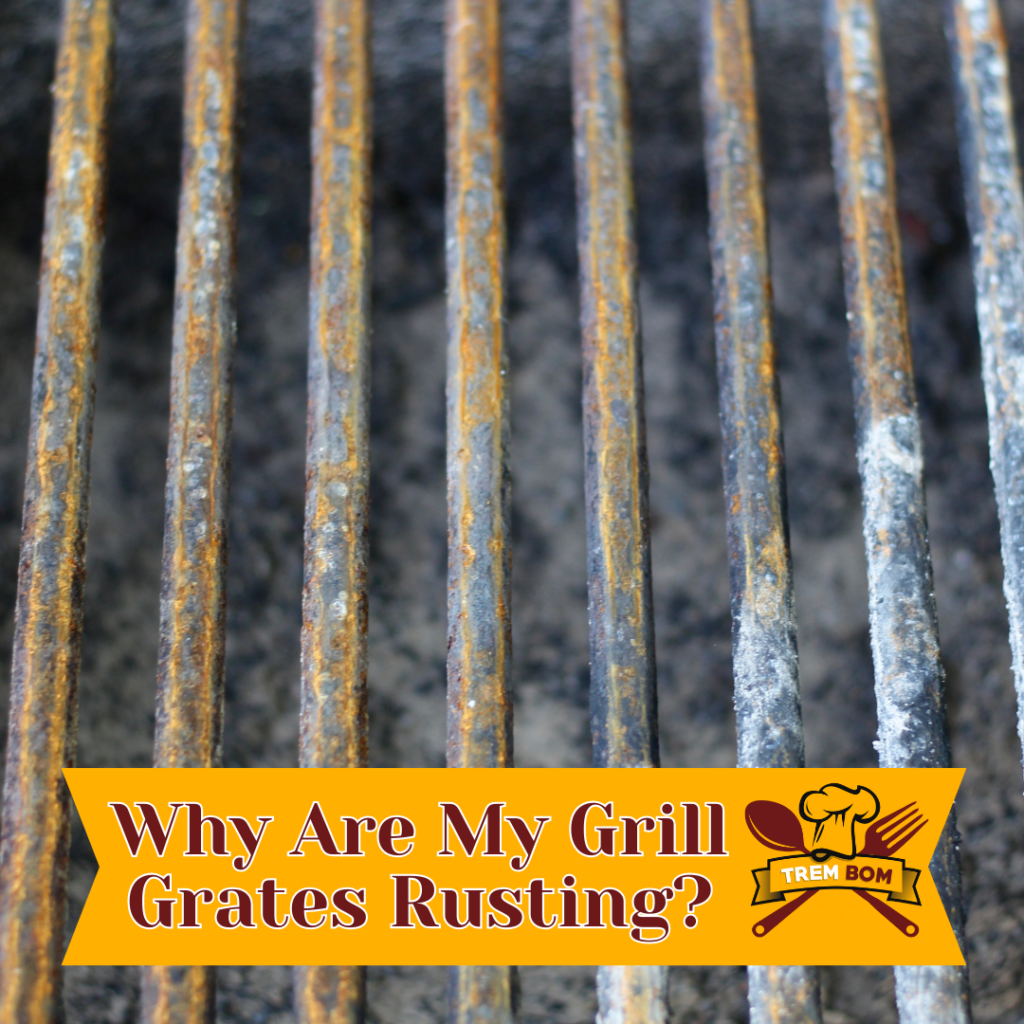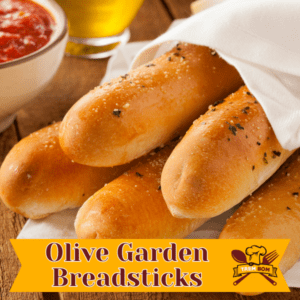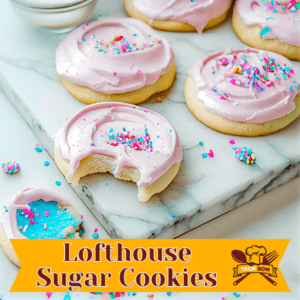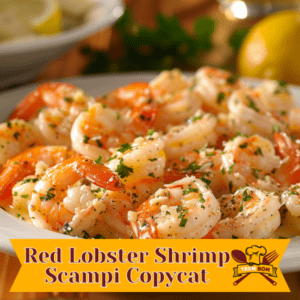
Key Takeaways:
- Understanding the Difference Between Grease and Oil: Knowing the distinction between grease and oil is crucial for preventing rust on grill grates. Grease accumulates over time and can attract moisture, leading to rust formation. Using appropriate oils instead of grease can help maintain the condition of the grates.
- The Role of Chromium in Rust Prevention: Chromium is a key element in stainless steel that enhances its rust resistance. Grill grates with a higher chromium content are more resistant to corrosion. Understanding the importance of chromium can help you select grates that are less prone to rusting.
- Choosing the Right Oil for Grate Maintenance: Different oils have varying properties when it comes to rust prevention. Opt for oils with high smoke points, such as vegetable or canola oil, for seasoning and maintaining grill grates. These oils create a protective layer that helps prevent rusting.
- Cleaning Techniques for Rust Prevention: Regular cleaning is essential for rust prevention. Use grill brushes, warm soapy water, and stainless steel cleaners to remove food residue and prevent the accumulation of moisture that can lead to rust formation. Proper cleaning techniques are crucial for maintaining the longevity of your grill grates.
- Importance of Seasoning Grates: Seasoning grates involves coating them with a protective layer of oil, enhancing their non-stick properties and rust resistance. Season your grates regularly to create a barrier against moisture and rust. This simple step can significantly prolong the lifespan of your grill grates.
- Conclusion and Call to Action: By understanding the difference between grease and oil, recognizing the role of chromium, choosing the right oil, employing proper cleaning techniques, and seasoning your grates, you can effectively prevent rust formation on your grill grates. Take these steps to ensure your grill grates remain in excellent condition, extending their durability and enhancing your grilling experience.
Introduction to Preventing Grill Grates Rust
Grill Grates Rusting: An In-depth Look
Grill grates play a crucial role in ensuring a flavorful and perfectly cooked meal. However, have you ever wondered why your grill grates start to rust over time? This article explores the reasons behind grill grate rusting, providing valuable insights into preventing and addressing this common issue. By understanding the causes and implementing proper maintenance techniques, you can extend the lifespan of your grill grates and continue to enjoy delicious BBQ meals for years to come.
To begin, it’s important to recognize that rusting is a natural process caused by the exposure of metal to oxygen and moisture. This combination creates an ideal environment for corrosion to occur. While rusting is inevitable to some extent, there are several factors that can accelerate this process. High humidity levels, prolonged exposure to rain or moisture, and neglecting to clean or dry the grill grates properly after each use can all contribute to rust formation.
Moreover, certain food residues can also play a role in accelerating rusting. Acidic ingredients like vinegar, citrus juices, and marinades containing lemon or lime can corrode the metal surface if left on the grill grates. It’s essential to remove any food debris and residue to mitigate the risk of rusting. Regular cleaning and seasoning of the grill grates can create a protective layer that helps prevent rust formation.
Rust vs Grease: Understanding the Differences and Their Impact on Your Grill Grate
In understanding the distinction between grease and oil, it is important to note that grease is thicker and stickier than oil. Grease is a semi-solid lubricant composed of oil and a thickening agent, while oil is a liquid lubricant. Here is a comparison table to further clarify the dissimilarity:
| Properties | Grease | Oil |
|---|---|---|
| Consistency | Thick and sticky | Liquid |
| Composition | Oil + thickening agent | Pure oil |
| Lubrication duration | Longer-lasting lubrication | Shorter-lasting lubrication |
| Applications | Suitable for high-temperature and heavy-duty applications | Ideal for low-temperature and light-duty applications |
| Benefits | Offers better resistance to water and contaminants | Provides faster and easier application |
To delve into unique details, it is worth mentioning that grease is commonly used for highly loaded machinery parts such as bearings, gears, and joints. Its thickness helps it adhere to surfaces and create a protective barrier against friction and wear. On the other hand, oil is more suitable for applications requiring fast and easy lubrication, such as in small mechanical parts or in areas with intricate designs where grease cannot effectively reach.
For effective use, some suggestions include ensuring the right type of grease or oil is used based on the specific application and following the manufacturer’s guidelines. Regular cleaning and inspection of grill grates can also prevent the accumulation of grease or oil, which can lead to rusting. Additionally, proper storage conditions and avoiding contamination are crucial to maintain the quality and effectiveness of both grease and oil lubricants.
How Chromium in Stainless Steel Helps Prevent Rust on Grill Grates
Chromium plays a crucial role in preventing rust formation on grill grates. With its inherent corrosion-resistant properties, chromium forms a thin protective layer on the surface of the grates, preventing the interaction of oxygen and moisture with the underlying metal. This layer acts as a barrier and prevents the formation of rust.
The high chromium content in stainless steel grates enhances their resistance to rust, making them a popular choice for outdoor cooking enthusiasts. By incorporating chromium into the composition of grill grates, manufacturers ensure a longer lifespan and better performance, even in harsh weather conditions.
Such use of chromium in rust prevention has a rich history, with its effectiveness being recognized and utilized in various industries beyond just barbecuing.
Selecting the Right Oil to Keep Your Grill Grate Rust-Free
Choosing the Appropriate Oil for Grate Upkeep
For maintaining your grill grates, it is vital to select the right oil. In order to make an informed decision, consider various factors such as smoke point, flavor, and heat resistance.
| Oil Type | Smoke Point | Flavor | Heat Resistance |
| Canola Oil | 400°F (204°C) | Neutral | Medium |
| Olive Oil | Up to 375°F (190°C) | Mild | Low |
| Avocado Oil | Up to 500°F (260°C) | Neutral | High |
| Peanut Oil | Up to 450°F (232°C) | Mild and Nutty | High |
Each oil has its unique characteristics that make it suitable for grate maintenance. For instance, canola oil provides a high smoke point, making it ideal for high-temperature grilling. On the other hand, olive oil may have a lower smoke point but imparts a mild flavor to the food. Meanwhile, avocado oil offers high heat resistance, ensuring durability. Lastly, peanut oil’s nutty flavor adds a delightful taste to the grilled dishes while being able to withstand high heat.
Consider these suggestions when choosing the oil for your grate maintenance regime. Understanding the smoke point of each oil will enable you to select one suitable for your preferred grilling method. Additionally, the flavor imparted by the oil should complement the taste of your food. Lastly, the heat resistance of the oil will determine its efficacy in enduring the rigors of grilling. Making an informed choice will ensure the longevity and optimal performance of your grill grates.
Grill Cleaning Techniques for Preventing Rust and Maintaining Cast Iron Grill Grates
Cleaning Techniques for Preventing Rust
Rust prevention is crucial in maintaining the longevity and efficiency of grill grates. Here are six effective cleaning techniques to prevent rust:
- Regularly clean the grill grates with a stiff wire brush to remove any residual food particles and debris.
- After cleaning, apply a thin layer of vegetable oil to the grates to create a protective barrier against moisture and oxidation.
- Consider using a grill cover when the grill is not in use to shield the grates from the elements, preventing rust formation.
- Avoid using abrasive cleaning tools or harsh chemicals, as they can strip off the protective coating on the grates and make them more prone to rusting.
- Inspect the grill grates regularly for any signs of rust. If rust is present, gently scrub the affected areas with a sponge or cloth dipped in a solution of equal parts water and vinegar.
- Lastly, always ensure that the grill grates are completely dry before storing them to prevent moisture accumulation and subsequent rusting.
Furthermore, it is worth noting that stainless steel grill grates are less susceptible to rust compared to cast iron grates, as they contain a higher percentage of chromium, which provides better resistance to corrosion.
To safeguard the investment you’ve made in your grill and its grates, make sure to employ these cleaning techniques consistently. Don’t let rust compromise the taste and quality of your meals – act now and protect your grill grates from rusting!
The Importance of Seasoning Your Grill Grates to Prevent Rust
The Significance of Seasoning Grill Grates
Seasoning grates is crucial for maintaining the quality and durability of your grill. Here are three reasons why seasoning grates is of utmost importance:
- Prevents rusting: Seasoning the grates creates a protective layer that shields them from moisture, thereby minimizing the chances of rust formation.
- Enhances flavor: When the grates are seasoned, they develop a non-stick surface that adds a smoky flavor to your food, making it more delicious and memorable.
- Prolongs lifespan: Regularly seasoning the grates prevents food particles from adhering to the surface, which not only preserves their cleanliness but also extends their lifespan.
Furthermore, it is essential to note that seasoning grates should be performed properly, using the right techniques and materials. This will ensure optimal results and prevent any harmful effects on the grates.
As for a true history about the significance of seasoning grates, it dates back to the early days of grilling. Experienced grill masters discovered that seasoning grates not only improved the taste of the food but also protected the grates from rust and corrosion. This knowledge has been passed down through generations, reinforcing the importance of seasoning grates in the grilling community.
Conclusion: How to Stop Rusty Grates from Ruining Your BBQ Grill Experience
Grill grates rust due to factors like moisture and exposure to oxygen. To prevent rusting, clean and oil the grates regularly. Additionally, cover the grill when not in use and store it in a dry place. Remember, taking proper care of your grill grates will prolong their lifespan and ensure optimal grilling experiences.
Five Facts About Why Are My Grill Grates Rusting:
- ✅ Grease causes rust on grill grates.
- ✅ Oiling your grill grates prevents rust from happening.
- ✅ Cleansing food particles and grease from the grill surface allows chromium to prevent rust.
- ✅ Grates need to be cleaned after each cook to remove food and grease and prevent rust.
- ✅ Applying a light coat of oil on grill grates after cleaning helps prevent rust.
FAQs: Answers to Your Questions About Rusty Grill Grate and How to Prevent Grill Grates from Rusting
Q: Why are my grill grates rusting?
A: One of the main reasons why grill grates rust is the presence of cooked grease and food particles. Cleansing these away after every cook is crucial to prevent rusting.
Q: How does grease contribute to rusting?
A: Grease actually causes rust on grill grates. It is important to differentiate between grease and oil. Oiling your grill grates after cleansing them helps prevent rust from occurring.
Q: What is the importance of cleaning off food and grease from grill grates?
A: Cleaning off food particles, cooked grease, and junk is essential for the Chromium in the grates to work properly. Chromium needs oxygen to keep your grates from rusting, so it is vital to remove any debris that may hinder this process.
Q: What type of oil should I use to prevent grill grates from rusting?
A: Palm and grapeseed oil are our recommended options for applying a light coat of oil to your grates. However, in a pinch, olive oil can also be used to prevent rusting.
Q: How often should I clean my grill grates to avoid rusting?
A: It is advisable to clean the grease, food particles, and junk off your grill grates after each cook. Regular and thorough cleaning will help maintain the grates’ condition and prevent them from rusting.
Q: Where can I seek help if I have more questions about preventing rusty grill grates?
A: Our customer service department is always ready to assist you with any inquiries you may have regarding preventing rust on your grill grates. Feel free to reach out to us for further assistance.






